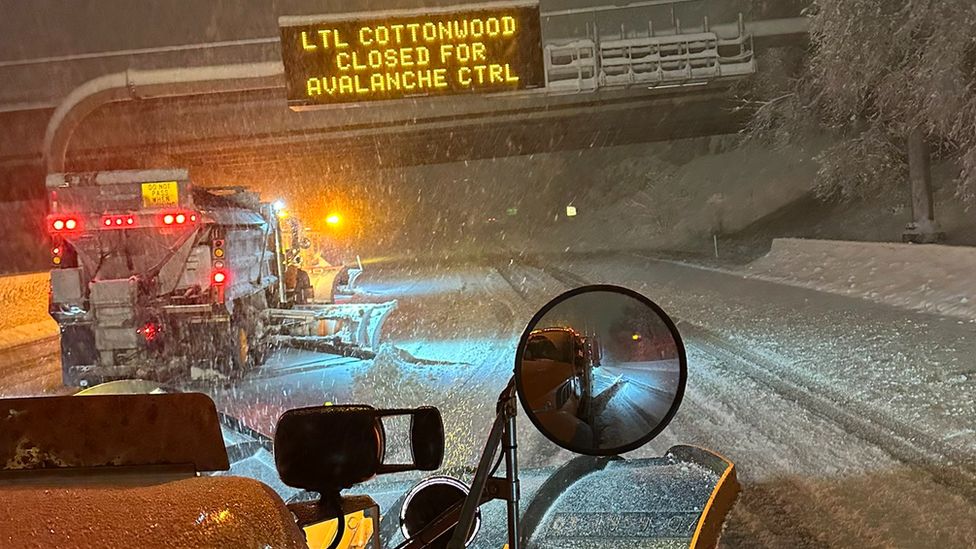ARTICLE AD BOX
 Image source, UtahDOT
Image source, UtahDOT
By Chloe Kim
BBC News, Washington DC
Widespread disruption is expected as a fierce winter storm begins to make its way through several US states.
Blizzard conditions across the Dakotas, Minnesota and Wisconsin have forced many schools and businesses to close.
Wind gusts potentially reaching 50mph (80kph) and a wind chill as low as -50F (-45C) in some parts are predicted.
While about 75 million people in 29 states are under winter weather alerts, parts of the eastern US are forecast to experience record high temperatures.
In northern states, forecasts of up to two feet (0.6m) of snow in some parts could mean areas endure their biggest snowfalls for 30 years.
Minnesota's governor Tim Walz said the National Guard will be available to help motorists who become stuck in the blizzard conditions there.
The Utah Department of Transport issued a warning to morning commuters: "This is a reminder to stay home and limit travel if possible."
Forecasters said the storm system could produce an icy band across 1,300m (2092km) from Nebraska to New Hampshire.
Flight cancellations
According to FlightAware data, there have been 866 flight cancellations within, to or from the United States as of 08:30 EST on Wednesday morning.
Meanwhile, typically sunny and warm Los Angeles, California, will see major snow and winds up to 75mph in the mountains and foothills of Ventura and Los Angeles County.
David Swain, a climate scientist at the University of California-Los Angeles, wrote on Twitter that all of California "will be able to see snow from some vantage point later this week".
Unlike the western part of the country, parts of the eastern US will see record highs - Washington DC could hit 80F on Thursday, which would break a record set in 1874.
"All winter, we've seen this persistent pattern, where the western US is seeing below-average temperatures and the eastern US is seeing above-average temperatures," climate scientist Andrew Kruczkiewicz, a researcher at Columbia University told BBC News.

 2 years ago
35
2 years ago
35








 English (US) ·
English (US) ·